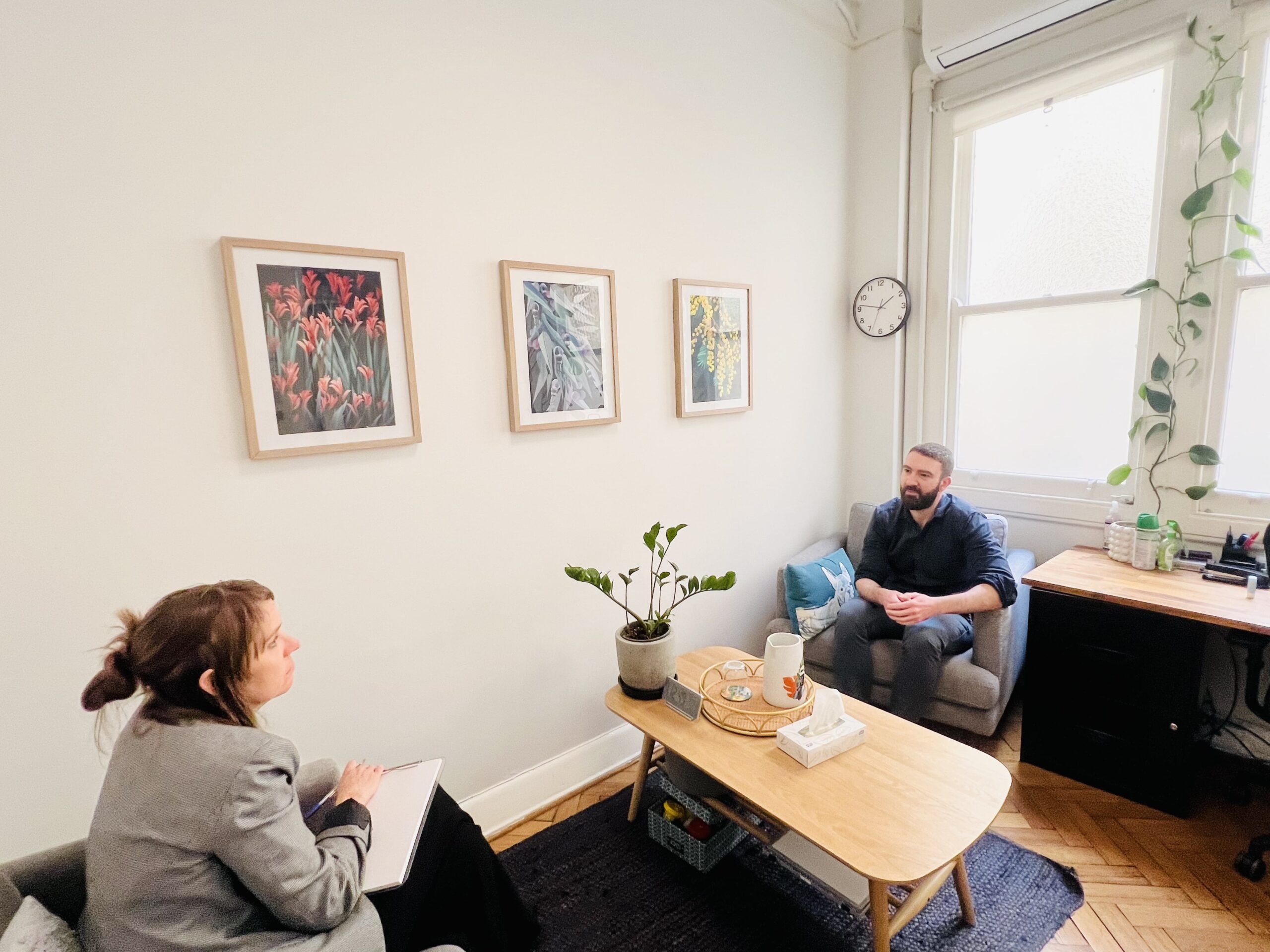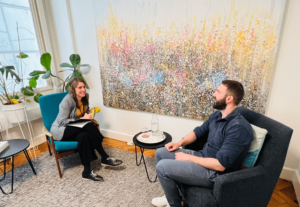- 8th November 2024
Psychologists come in many specialisations, each with their own skills to help people in different areas of their lives. Whether it’s managing mental health issues, overcoming obstacles in sport, or understanding the psychological aspects of legal cases, each type of psychologist offers different services. Here’s an overview of some common types of psychologists and what they do.
Table of Contents
General Psychologists in Melbourne
What They Do
General psychologists are mental health professionals who offer a wide range of services to individuals seeking therapy for various mental health issues. They are skilled in assessment, diagnosis and treatment of psychological disorders, support for emotional distress, anxiety, depression and relationships. General psychologists often use cognitive behavioural therapy (CBT) to help clients develop coping strategies and achieve positive change in their lives.
Who They Help
General psychologists work with a wide range of clients, including children, adolescents and adults. They help individuals dealing with everyday stressors, life transitions and chronic pain, a safe space for people to explore their thoughts and feelings. General psychologists are often found in private practice, community health settings and educational institutions, providing mental health care to the broader community.
In Melbourne general psychologists are key to promoting mental wellbeing and helping people navigate life’s challenges. Whether you’re looking for therapy for personal growth, managing mental health issues or improving your overall life, a general psychologist can help.
Education and Training for General Psychologists
To become a general psychologist you typically start with a bachelor’s degree in psychology, then a master’s degree in psychology or a related field. After completing your postgraduate degree you then need to do supervised practice to gain practical experience. This period of supervised practice is essential for developing the skills to assess, diagnose and treat psychological disorders. Once you have completed your training you then need to apply for general registration with the Australian Health Practitioner Regulation Agency (AHPRA) to be a registered psychologist.

Key Skills and Qualities of General Psychologists
General psychologists have:
Good communication and active listening skills to understand clients’ needs
Empathy and compassion to provide a safe space for clients to explore their thoughts and feelings
Analytical skills to assess and diagnose psychological disorders
Knowledge of evidence based therapies, such as CBT to implement treatment plans
Problem solving skills to develop strategies for managing mental health issues
Cultural competence to work with diverse populations
Ethical integrity to maintain confidentiality and adhere to professional guidelines
These skills and qualities enable general psychologists to help their clients achieve positive change and improve their mental health and wellbeing.
Clinical Psychologist in Melbourne
What They Do: Clinical psychologists who specialise in clinical psychology work with individuals with a wide range of mental health issues, from depression and anxiety to complex trauma and personality disorders. They are highly trained in assessment, diagnosis and treatment of psychological conditions and often work in hospitals, private practice or mental health clinics. Clinical psychologists use evidence based therapies like CBT, DBT and other interventions to help people manage and overcome their symptoms.
Who They Help: Clinical psychologists work with people of all ages, including children, adolescents, adults and the elderly. Their work is for those with significant mental health issues or those looking for support for ongoing mental wellbeing.
Health Psychologist
What They Do
Health psychologists work in health psychology, looking at the relationship between physical health and mental health. They examine the psychological factors involved in health behaviours such as diet, exercise and medication adherence and work with individuals to develop healthy habits. Health psychologists are often found in hospitals, public health settings or research environments where they promote healthier lifestyles and improve overall wellbeing.
Who They Help
Health psychologists work with patients with chronic illnesses such as diabetes, heart disease or obesity. They support people to cope with the psychological impact of health conditions and encourage behaviours that contribute to physical and mental health.
Forensic Psychology
What They Do
Forensic psychologists work at the intersection of forensic psychology and the legal system. They are involved in criminal cases, family court cases and other legal matters, often doing psychological assessments to provide expert witness testimony. Forensic psychologists may assess defendants to determine competence, assess risk of reoffending or provide recommendations in custody disputes.
Who They Help
Forensic psychologists work with law enforcement, the judiciary and correctional facilities. Their expertise informs legal decisions and provides insight into criminal behaviour, often assisting victims and offenders in the process.
Counselling Psychologist
What They Do
Counselling psychologists help people navigate life’s challenges such as relationship issues, stress, career transitions and personal growth. They work on wellbeing by building coping skills, increasing self awareness and resilience in the face of psychological disorders. Using therapeutic techniques similar to those of clinical psychologists they help people understand themselves and work through everyday issues.
Who They Help
Counselling psychologists often work in community organisations, schools or private practice. They work with individuals with less severe mental health issues and help clients improve their overall emotional and psychological wellbeing.
Educational and Developmental Psychologist
What They Do
Educational and developmental psychologists, including educational psychologists, work on how people learn and grow throughout their lives. In educational settings they work with students, teachers and parents to identify learning challenges, develop intervention strategies and support educational outcomes. In developmental roles they work on age specific issues such as childhood behavioural concerns or ageing related psychological needs.
Who They Help
These psychologists work in schools, universities and private practice, with students with learning difficulties, children with developmental challenges and aging adults needing cognitive or emotional support.
Sport and Exercise Psychology
What They Do
Sports psychologists apply sport and exercise psychology to improve athletic performance and support mental wellbeing in athletes. They work with individuals and teams to manage anxiety, build mental resilience and achieve optimal performance. Sports psychologists use techniques like goal setting, visualization and relaxation methods to help athletes cope with the mental demands of sport.
Who They Help
Sports psychologists work with athletes at all levels, from amateur to professional, as well as coaches and sports organisations. They play a key role in helping athletes stay focused, overcome performance barriers and manage pressure.
Organisational Psychologist
What They Do
Organisational psychologists work on behaviour in the workplace, to improve productivity, job satisfaction and the overall work environment. They may do employee assessments, develop training programs and assist with organisational change, often working with other health professionals to provide holistic care. By understanding group dynamics and individual motivators, organisational psychologists help build healthier more efficient workplaces.
Who They Help
These psychologists work in corporations, government agencies or consulting firms, with teams and individuals to improve job performance and work culture.
Choosing the Right Psychologist for You
Each type of psychologist has their own skills and expertise for different challenges or goals. If you’re dealing with complex mental health issues, seeing a senior clinical psychologist with a lot of experience can be very helpful. Whether you’re looking to address mental health issues, navigate personal change or improve your performance in sport, understanding the specialities of different psychologists will help you find the right support.
At Cova Psychology, our experienced team includes general, clinical, and counselling psychologists, all dedicated to supporting your mental health journey. Whether you’re seeking therapy for everyday stressors, complex mental health issues, or personal growth, we have therapists ready to assist you. Contact us to book an appointment.


Dr. Chris Coleiro
Chris is Clinical Psychologist and a co-director of Cova Psychology, located in the Melbourne CBD, where he provides supervision to psychologists whilst cultivating a supportive culture within the Cova team. Chris has worked extensively in the assessment and treatment of trauma, PTSD, and Borderline Personality Disorder. He combines a range of therapies in his approach including CBT, Schema Therapy, EMDR and IFS. Chris is a member of the Australian Psychological Society (APS), the APS college of Clinical Psychology, and of the Eye Movement Desensitisation Reprocessing Australian Association (EMDRAA).














